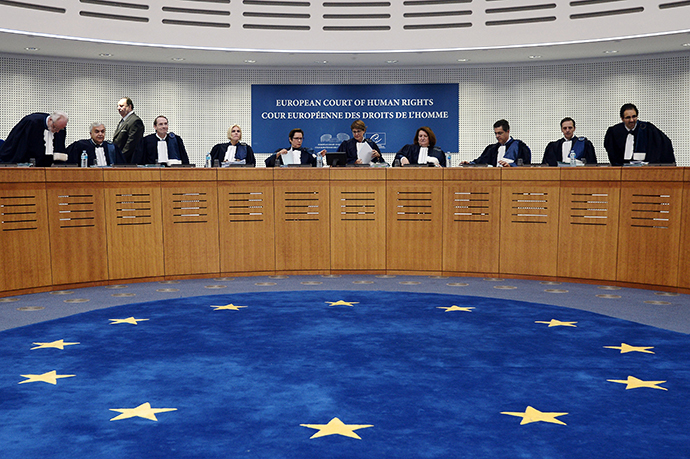‘Should UK be part of ECHR after Somali pirates ruling?’

The decision of the European Court of Human Rights to pay damages to Somali pirates is rather bizarre and poses the question whether the UK should remain a part of this system, Ben Harris-Quinney, of The Bow Group, told RT.
RT:What do you personally think of the ruling? How justified was it?
Ben Harris-Quinney: I think it is the latest and serious of rulings which have brought the European Court of Human Rights into attention in the UK. And the raised question is to whether it is a valid body at all and should form part of a judicial system. It is true that all courts sometimes come up with bizarre decisions. But this court is particularly focused on the macro level decision making when it comes to major rulings on issues that affect all constituent nations and also on issues related to international affairs. There are a lot of people in the UK that don’t really see a role for that judicial body in our system at all.
RT:Human rights are clearly important. But in some cases at the ECHR protecting them can lead to leniency for some rather hard-bitten criminals. Where do you draw the line?
BHQ: I don’t think that line should necessary be drawn there. The line is the point of necessity. In the case of the UK we have to ask the question: is there any added value in having this additional level of judicial oversight and bureaucracy at the top of our system. Increasingly people are coming to the conclusion that there isn’t. While the UK often has bizarre judicial rulings they are always relevant to the UK only and do not involve other aspects of international engagement. When we are seeing these bizarre decisions being replicated and often coming out more regularly in the case of the ECHR, at that point we have got seriously to ask the question whether there is any value to our involvement in ECHR, whatsoever.

RT:UK Conservatives are considering pulling out of the Human Rights Convention to make sure that its rulings aren't enforceable in the UK. Where do you stand on this? How does it work in other countries as well?
BHQ: The time is coming now to pull out of the ECHR. It has to be made clearly remember that the ECHR is not part of the EU, so we could remain in the EU and pull out the ECHR, or we could leave the EU and remain part of ECHR… I think that British justice system certainly is not in any way in theory part to the ECHR. Therefore and don’t see why it is necessary for Britain. For other countries I can see the argument more so: countries where there is very significant instance of an evidence of corruption, for example. And having that higher level of court there that that is able to oversee some of the decisions that national courts that are potentially subjects of corruption – that can have a value. It should be for each country to decide that. And in the case of the UK we are probably coming around to the conclusion that the ECHR brings more negatives than it does benefits.
RT:Is it possible to reform the European Human Rights Court to make sure it stays clear of the controversy?
BHQ: That is what the former Attorney General Dominic Grieve is saying, much similar to David Cameron’s case towards the EU as a whole that the answer is reform not to pull out altogether. I think the problem is because of the number of constituent nations that come together to form the ECHR. It is going to be very difficult for each nation to achieve that level of reforms that would be required to give it value above and beyond the national court system of those nations.
From the UK’s point of view, yes, if we can achieve the reforms that we require we can prevent decisions like large sums of money being going to Somali pirates and indeed the decision that was made a few years ago to grant prisoners the right to vote.
If we can see the court reformed to the point that perhaps British courts have primacy and checking balance in this sort of decisions then it might be worthwhile. But it is unlikely that that would be granted. I think moves to reform are possible pie in the sky. I don’t think it would be to the great detriment of the UK, to judicial system to pull out. Some might say that in that case the UK is moving away from an agenda tool of human rights. But that is quite wrong, the UK has a strong enough track record on human rights to stand on its own.
The statements, views and opinions expressed in this column are solely those of the author and do not necessarily represent those of RT.
The statements, views and opinions expressed in this column are solely those of the author and do not necessarily represent those of RT.












